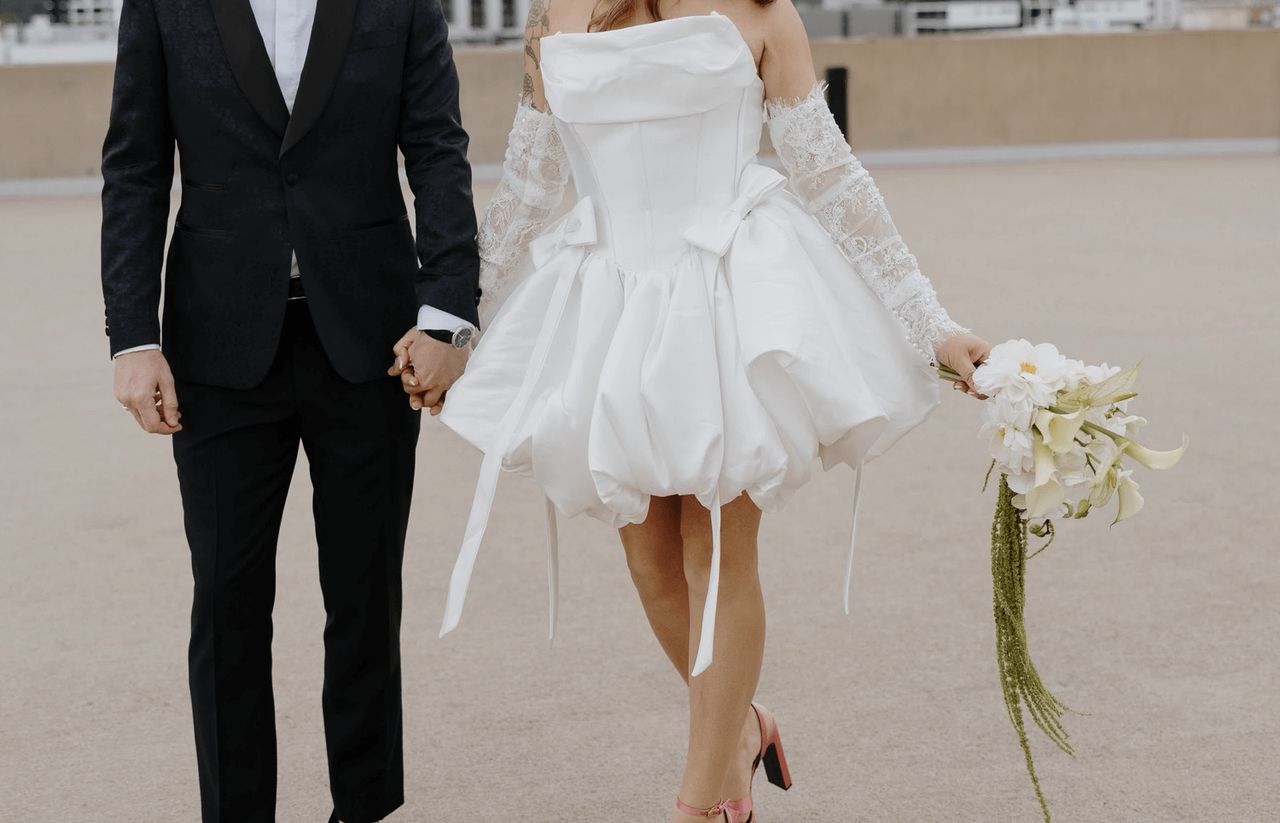· Wedding planning · 3 min read
Who Pays for What in a Wedding?
Ever heard that the bride’s family pays for everything while the groom’s family just shows up with a cheque for the booze? Yeah, that’s old-school.

One of the quickest ways to drain the joy out of wedding planning? Talking about money without clarity.
So, who actually pays for what in a wedding these days? Let’s clear it up.
The Old-School Way
Back in the olden days when the internet was the thing in-between your fishing net and a vape was something your stovetop did, it went something like this:
- Bride’s family paid for the big reception, ceremony costs, flowers, and the bride’s dress.
- Groom’s family paid for the alcohol, rehearsal dinner, and sometimes the honeymoon.
- Bridesmaids and groomsmen paid for their own outfits.
- The groom bought the bride’s rings (and sometimes vice versa).
These “rules” came from an era of certain assumptions (and gender roles) that don’t fit many modern couples.
The Modern Reality
These days, most couples pay for the bulk of their wedding themselves, often from joint savings or shared funds. Parents might chip in, but it’s not a requirement.
Here’s how it often breaks down now:
Wedding Attire
- Each person usually pays for their own outfit.
- Some brides cover bridesmaids’ dresses as a gift, while others ask bridesmaids to buy their own.
- Groomsmen typically pay for or hire their suits, but again, some couples cover this as a gift.
This is a major reason that we’ve seen the decline of the bridal party. Because it’s a big expensive thing that doesn’t often mean a lot, and those people and yuor relationship with them can still be celebrated but they don’t have to wear a wedding uniform and go whole-hog on the expenses.
Rings
- Traditionally, each buys the other’s wedding ring.
- Many modern couples simply pay from joint savings, especially if finances are already merged.
Ceremony, Venue, and Reception
- Typically paid for by the couple.
- If parents are contributing, they might cover a specific element (e.g. catering, bar tab, or photography).
- Best advice: have a clear chat with any family offering help to clarify exactly what they’re covering, so there’s no awkwardness later.
Rememeber that whoever pays gets a say, so if that matters, consider not taking the money.
Accommodation and Travel
- Guests pay for their own travel and accommodation.
- Couples sometimes pay for accommodation for important guests (like grandparents) or cover transport on the day (buses between ceremony and reception).
The “Bride’s Family Pays” Expectation
It still happens sometimes, but it’s far less common. There’s no rule that says parents must pay – it’s a lovely bonus if they do, not an expectation.
Cultural Variations
Some cultures have traditions where the bride’s family hosts (and pays), while others have customs like a “money dance” or guests contributing in other ways. Do what works for your family and culture.
What About Guests?
Guests only pay for:
- Their own travel and accommodation.
- Their gift for the couple.
In my humble little opinion they should never be asked to pay a “ticket” to attend your wedding (cash bars are a separate thing, but even then, be upfront). Why? Because the very definition of a wedding is that you are playing host to these people.
If you can’t afford to host them, don’t host them.
Have the Conversation Early
The key to avoiding stress (and potential resentment) is clear, early communication:
- Sit down together and work out your budget first.
- If parents have offered to contribute, chat with them about what they’d like to cover, and confirm it.
- Decide if you want to split costs evenly with contributing parents, or have them take on specific vendors.
- Remember there’s no one-size-fits-all. It depends on what works for your family, your finances, and your comfort.
Do What Works for You
There’s no award for sticking to outdated traditions, and no shame in paying for your own wedding if that’s your situation.
If family wants to help, great. If not, you’re still getting married, and that’s the main thing.



